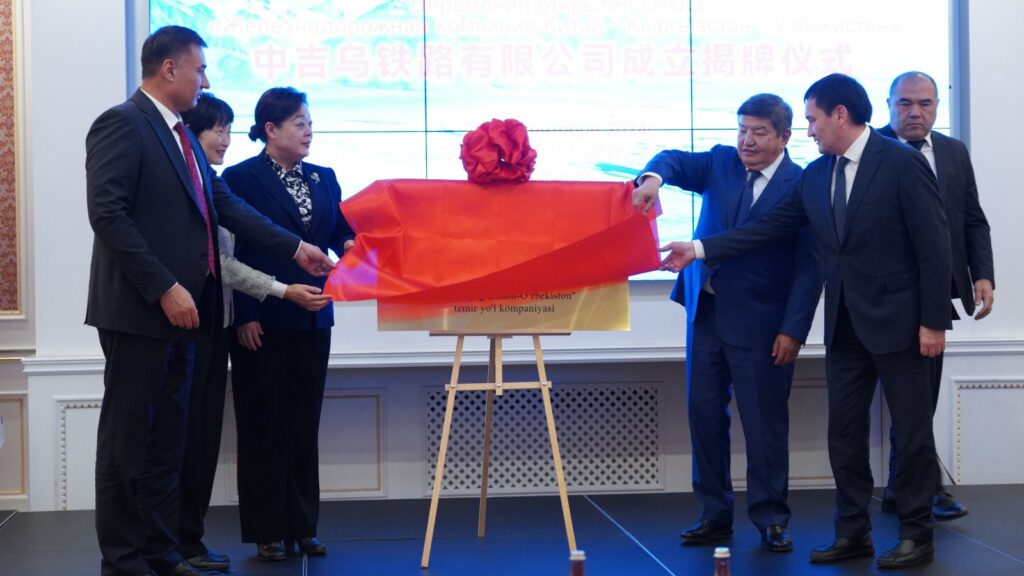China-Kyrgyzstan-Uzbekistan Railway Company Opened in Bishkek
On September 28, LLC China-Kyrgyzstan-Uzbekistan Railway Company opened in Bishkek for the purpose of constructing and operating a line connecting the three countries. The opening ceremony was attended by the Chairman of the Cabinet of Ministers of the Kyrgyz Republic, Akylbek Japarov, the Chinese Ambassador to Kyrgyzstan, Du Dewen, high-ranking officials from the Department of Foreign Capital and Overseas Investment of China’s National Development and Reform Commission, and Uzbekistan’s Minister of Transport, Ilkhom Makhkamov. Emphasizing the railway's importance for the region, Japarov stated: "We call this project ‘the construction of the century.’ It will take economic cooperation between China and Central Asian countries to a qualitatively new level." Currently, neither Kyrgyzstan nor Uzbekistan has a rail link with China, with Central Asia only having a connection to China through Kazakhstan. Kyrgyzstan and Uzbekistan also have no railway connecting the two countries. China, Kyrgyzstan, and Uzbekistan signed an intergovernmental agreement on the railway construction project on June 6 in Beijing. As previously reported by The Times of Central Asia, the 523 km railway will run through Kashgar (China), Torugart, Makmal, Jalal-Abad (Kyrgyzstan), and Andijan (Uzbekistan). A transit and logistics infrastructure will be developed along the route. Once completed, the line will see 15 million tons of cargo annually. In June, Akylbek Japarov confirmed a statement made by Kyrgyz President Sadyr Japarov in April 2024, stating that the railway construction would cost $8 billion as opposed to the preliminarily estimate of $4.7billion.


